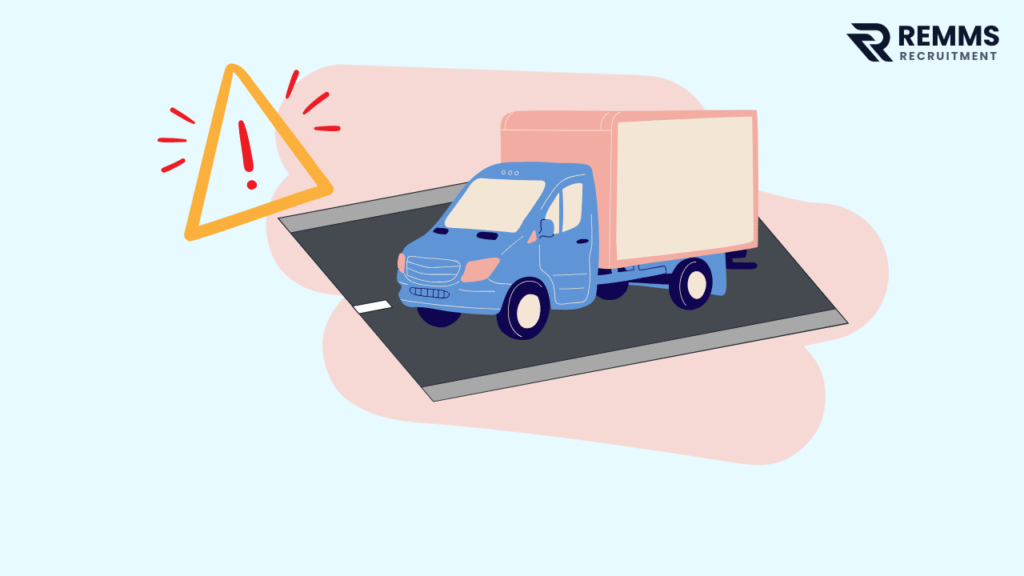
When we talk about trucking in Georgia, one thing always comes first; safety. The state is more than just a busy hub on the map. It is the heart of the Southeast supply chain. From the Port of Savannah to Atlanta’s busy freight lanes, Georgia moves goods that keep the U.S. economy running. That makes trucking safety in Georgia a serious responsibility for every company, every driver, and every logistics professional involved.
I want to walk you through why compliance matters, how rules shape the industry, and what opportunities exist for drivers and supply chain experts. If you’re a business owner, a driver, or someone looking to grow in logistics, understanding trucking safety in Georgia is key.
Georgia’s Role as a Logistics Hub
Georgia has become a powerhouse in logistics. Think about it, the state has one of the fastest-growing ports in the nation, a world-class airport, and interstate highways that connect to nearly 80% of U.S. markets within two days. That’s huge for trucking companies and supply chain management.
Because of this, the demand for qualified truck drivers and logistics talent continues to rise. Distribution centers and freight companies are always on the lookout for skilled people. This is where staffing plays a role. The best staffing agencies, top staffing firms, and even the best manpower agency for logistics jobs are helping companies find the right people at the right time. For drivers, that means real employment opportunities. For supply chain experts, it means stability in a growing industry.
But none of that growth matters if we don’t prioritize compliance and safety.
Why Trucking Safety in Georgia Matters
Let’s be honest, trucking is risky. You have heavy loads, long hours, and busy roads. Without strict safety standards, the results can be dangerous. That’s why FMCSA regulations and Georgia transportation law exist. They set the framework that keeps drivers, cargo, and the public safe.
When a trucking company in Georgia follows compliance, it is doing more than checking a box. It is protecting its reputation, reducing accidents, and making sure supply chains stay reliable. I always say, compliance is not an option it is the foundation of trust in this industry.
Understanding DOT Compliance and FMCSA Regulations
Now, let’s talk about what compliance actually looks like. At the core, we have DOT compliance. This is about following the rules of the U.S. Department of Transportation. It covers everything from driver qualifications to vehicle inspections.
Then we have the FMCSA regulations. These are federal standards designed for commercial trucking. In Georgia, companies must meet both federal and state requirements. That includes hours-of-service rules, drug and alcohol testing, and proper insurance coverage.
Why does this matter to you as a driver or a company? Because violations don’t just bring fines. They can shut down operations, ruin contracts, and damage trust with clients. For drivers, non-compliance can cost you your job or even your license.
Commercial Vehicle Safety in Everyday Operations
Every truck on the road in Georgia is part of a bigger picture of commercial vehicle safety. From routine inspections to roadside checks, safety is everywhere. I’ve seen companies invest heavily in electronic logging devices (ELDs) to track driving hours. This reduces fatigue-related accidents.
Maintenance is another big one. A single missed inspection can lead to breakdowns or worse serious accidents. Georgia’s Department of Public Safety takes this seriously, and trucking companies should too. For you as a driver, this means you’re expected to check your vehicle daily. For companies, it means building a safety-first culture.
The Human Side of Compliance
It’s easy to look at compliance as paperwork. But at its core, it’s about people. Drivers need to feel safe behind the wheel. Families on the road need to trust that trucks are maintained and drivers are alert.
I’ve spoken with many drivers who say they feel more valued when their company prioritizes safety. It shows respect. It shows responsibility. And for companies, it means lower turnover and better retention. That’s where a strong staffing solution also comes into play. Agencies that connect companies with reliable, safety-conscious drivers make compliance much easier to maintain.
Balancing Growth and Safety
Here’s the challenge. Georgia’s logistics sector is growing fast. Companies want to scale. New contracts keep coming in. But scaling without safety is a recipe for disaster.
This is where compliance officers, safety managers, and supply chain experts play a huge role. They make sure rapid growth doesn’t sacrifice standards. For drivers, this means more training, better technology, and more support on the road. For companies, it means investing in systems that align with Georgia transportation law and FMCSA regulations.
The good news? The companies that get safety right often attract better clients. They win long-term contracts because shippers want reliable partners. And they also attract better talent because drivers want to work where safety matters.
Opportunities in Trucking and Supply Chain Careers
So where does this leave you if you’re exploring a career in Georgia logistics? In a great spot.
If you’re a driver, trucking safety in Georgia makes your role more valuable. Companies are looking for CDL holders with clean records, compliance knowledge, and a commitment to safety. That’s where the best staffing agencies and top staffing firms come in. They connect you with employers who need your skills.
If you’re a supply chain or compliance professional, your expertise is in demand. Companies need people who understand DOT compliance, can track FMCSA regulations, and ensure smooth operations. It’s a career path with long-term stability because safety will never stop being important.
Even agencies like the best manpower agency for logistics are seeing more demand for safety managers and compliance coordinators. That tells you where the industry is heading.
The Bigger Picture of Safety
When we zoom out, it’s not just about Georgia. It’s about how states like Georgia set the standard for others. By enforcing commercial vehicle safety, Georgia shows that growth and responsibility can go hand in hand.
Think of it this way. A truck leaving Savannah might deliver to Chicago or New York. The safety practices put in place here in Georgia ripple across the whole nation. That’s the real power of compliance. It protects more than just local roads. It protects the entire supply chain.
Final Thoughts
At the end of the day, trucking safety in Georgia is not just a legal requirement. It’s a mindset. It’s about putting people first while keeping the economy moving.
If you’re a driver, I encourage you to embrace compliance. It protects your career and your life. If you’re a company, make safety your brand. Clients will notice. Drivers will appreciate it. And regulators will respect it.
Georgia’s logistics industry is only going to grow stronger. But the companies and professionals who thrive will be the ones who make safety their foundation. That’s the real compliance essential. It’s not paperwork. It’s people. It’s trust. That’s why trucking safety in Georgia matters for drivers, and for the communities that depend on safe roads. And it’s the future of trucking in this great state.

